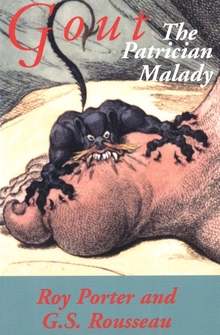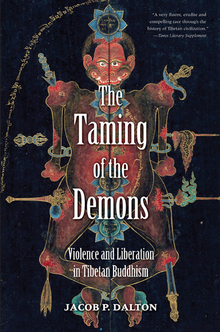Gout
WARNING
You are viewing an older version of the Yalebooks website. Please visit out new website with more updated information and a better user experience: https://www.yalebooks.com
The Patrician Malady
Roy Porter and G. S. Rousseau
G. S. Rousseau is an American cultural historian, and currently Co-Director of the Centre for the History of Childhood at Oxford University. He is also a Fellow of the Royal Historical Society and has been awarded several doctoral degrees honoris causa. His many previous books include Perilous Enlightenment, a biography of Youcenar and Nervous Acts: Essays on Literature, Culture and Sensibility.
“The book totally supplants everything previously attempted in this vein, and besides it is a lively and enjoyable reading experience, moving as it does from richly documented primary material to thoughtful theoretical argument. . . . This will be for many years the definitive treatment of the topic, and curious readers in many fields will find it an illuminating study of the ways in which the frailties of the human body can be transformed, denied and mythologized.”—Pat Rogers, Times Literary Supplement
"Only rich people get the gout! Or so the common wisdom ran for hundreds of years. Roy Porter and G.S. Rousseau’s wonderful history of gout shows how the history of a disease and the idea of class come to be mixed and form a picture of gout as the rich man’s disease. Superbly illustrated and with a serious attention to the role of visual sources in writing the history of this disease, this book is a major addition to the cultural history of illness. But be warned: it is such a rich feast, you may get the gout!"—Sander L. Gilman, Henry Luce Professor of the Liberal Arts in Human Biology, The University of Chicago
“In this fascinating general interest study, Ray Porter and G.S. Rousseau examine the medical, cultural, and ethical history of an affliction long associated with outrageous upper-class overindulgence. . . .Their final chapter, which presents the ‘visual heritage’ of gout through many illustrations, must surely be an indispensable addition to the literature on the subject. Focusing on the 18th and 19th centuries, the work is lucid, unique in its approach, and replete with insights into the links between culture and disease.”—Robert Taylor, Boston Globe
"This is a superb social, cultural, and medical history of one of the few diseases that people are proud to have. The affliction has an agreeable 18th-century aura about it, as well as being associated with high living and genius."—Katherine A. Powers, Boston Sunday Globe
“The book represents the social history of medicine at its best. . . . Even readers who do not have a compelling interest in hyperuricaemia will enjoy this romp through three centuries of British social and literary history.”—Edward Shorter, American Historical Review
“An excellent book . . . a whimsical tour around a minor affliction.”—Ludovic Hunter-Tilney, Financial Times
“This is a work of the most astonishingly focused scholarship and insight.”—Nicholas Lazard, Guardian
“A tour-de-force. . . The book is not, and does not pretend to be, a book on the medical history of gout, but is rather an interesting thorough review of the cultural history of ‘gout.’”—Alfred Jay Bolloet, JAMA
"A thorough and enlightening history of gout. . . . highly recommended for medical history and large academic libraries."—Library Journal
"The book yields a host of biographical literary detail. It is also psychologically fascinating. We see how if society gives a disease a good name it can be borne with dignity and philosophical resignation, not to mention jaunty good humour. . . . This is a scholarly work which is also a delight to read. . . . A most instructive and entertaining book."—Peregrine Worsthorne, Literary Review
"To those who delight in hearing the voice of the past echoing from a scrap of a letter, a diary, or a bit of verse—from expletives of pain to "stiff-upper-lip" stolidity in the face of "patrician" anguish—the book provides a window on history that other chronicles of war, grand plagues, and grander medical heroics perforce must overlook."—Mark S. Lesney, Modern Drug Discovery
"Porter and Rousseau accurately trace the scientific advances influencing the understanding of gout. . . . I greatly enjoyed the book. No other disease could provide such reflections on the culture of the time. Porter and Rousseau analyze the interaction between gout and British culture brilliantly."—Daniel J. McCarty, New England Journal of Medicine
"A marvelous book, discussing its history, its medical treatment, its social and cultural effects and showing it as a multi-influential phenomenon. An eye-opener."—New Scientist
"This book is as much a cultural as a medical history. The authors take up the ancient analogy between the body natural and the body public, noting that gout was thought of ’as a constitutional disease. . . . This abundant, generous . . . book is very good reading."—Claude Rawson, New York Times Book Review
"The audience for their thoroughly documented, but highly readable, account will be more than doctors; the book is also worth the attention, at least, of readers already familiar to some degree with the history and literature of England in the three centuries the authors concentrate on."—Edward J. Huth, Science Books and Films
“[It] will become the standard history of gout from antiquity to the 1930s. . . . So broad is its scope that this book could serve as an introduction to a cultural history of medicine before 1900. . . . [An] authoritative new book.”—Jacalyn Duffin, Journal of the Canadian Medical Association
Publication Date: March 11, 2000
34 b/w illus.









